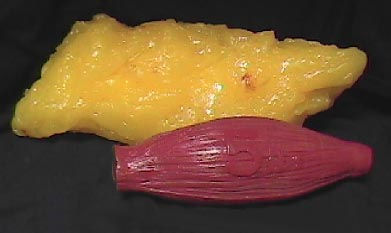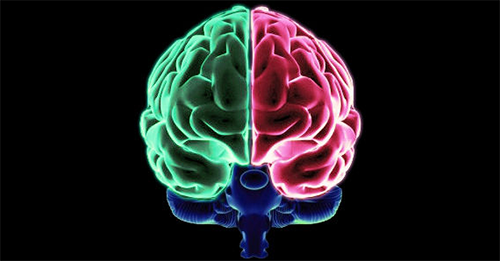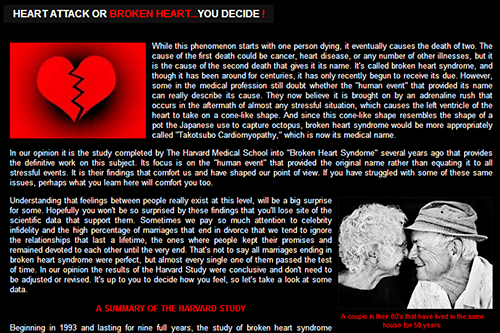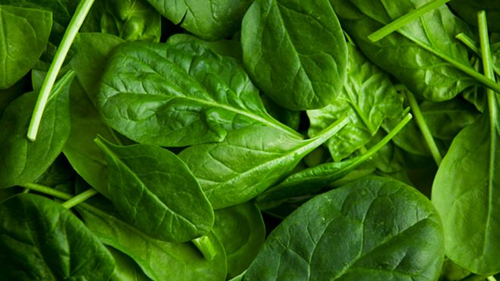BODY COMPOSITION

An exact replica of 5 pounds of fat and 5 pounds of muscle.
Muscle helps you maintain your BMR which makes it
easier to control your weight.
Metabolism is the process by which the body converts food into usable energy. This energy is used to fuel all the body's functions, including digestion, tissue repair, respiration, circulation and other factors that keep you alive. Converting calories into energy is what your metabolism is all about. The factors involved in determining your Basal Metabolic Rate are Age, Gender, Height and Weight. The reason height and weight are factors is because the more "Body Surface" you have the more energy is required to keep it functioning. A tall person will have a higher BMR than a shorter person even though they may weigh almost the same.
You aren't in control of your age, gender, or how tall you are...of the 4 basic factors the only one you have any opportunity to control is your weight. What most people miss is that the more you weigh the higher your BMR will be and that means you can consume more calories and still maintain your weight. In our opinion this means Body Composition is a huge factor in how successful you are likely to be in controlling your weight. The reason is illustrated in the image to the left which offers dramatic evidence that muscle fibers weigh more than fat. This difference in "weight by volume" is measured by your Body Mass Index, not your BMR. Your BMI determines the percentage of Body Fat you have. It is defined as your "body weight divided by the square of your height." In most countries if your BMI is above 25 you are overweight, 30 + and you're considered obese. The problem with this method is it doesn't address lean muscle mass. Many Athletes are considered obese under this formula even though they have very low percentages of Body Fat. In parts of Asia, including China, Japan and Singapore the BMI Index is much lower which reflects cutural values and body surface differences.
The other issue is your BMR declines naturally as you age due to a loss in lean muscle mass, further reducing the number of calories you can consume and maintain your weight. Your body also conserves energy as your weight declines meaning the less you weigh the fewer calories you can consume just to maintain your weight. Slowing your metabolism down by attempting to lose weight through diet alone seems ill advised to us because even when you reach your goal as soon as you attempt to return to more normal eating patterns you are likely to regain the weight. Exercise, especially activities that increase Lean Muscle Mass, speed up your Metabolism and since muscle is more dense than fat it weighs more by volume and the more you weigh the more calories you can eat. Remember your age, gender, height, and weight are the primary factors in determining your Basal Metabolic Rate...your BMR determines how many calories you can consume and maintain your existing weight. Adding muscle producing activity to your weight loss strategy not only increases your weight loss rate, it gives you more calories to work with as you go along which increases the odds you'll succeed. And once you reach your goal it makes weight control far easier to achieve which reduces the odds you'll regain the weight when you get there.
According to Stanford University Hospital... BMI is a measure of weight proportionate to height. Generally, BMI is considered an effective way to evaluate whether a person is overweight or obese, though there are exceptions to the rule. Some muscular people may have a BMI that puts them in the overweight range. However, these people are not considered overweight because muscle tissue weighs more than fat tissue.
It is a myth that exercise has no impact on your ability to lose weight. Calories are calories and even 100 calories a day translates into a 10 pound weight gain in a year. In 5 years that's 50 pounds. Your body doesn't care whether you eat one less piece of bread a day or you burn 100 calories through increased activity. It's interested in Net Calories...and if you adopt that mind set you will begin working with your body not against it and when that happens you will begin to control your weight.











